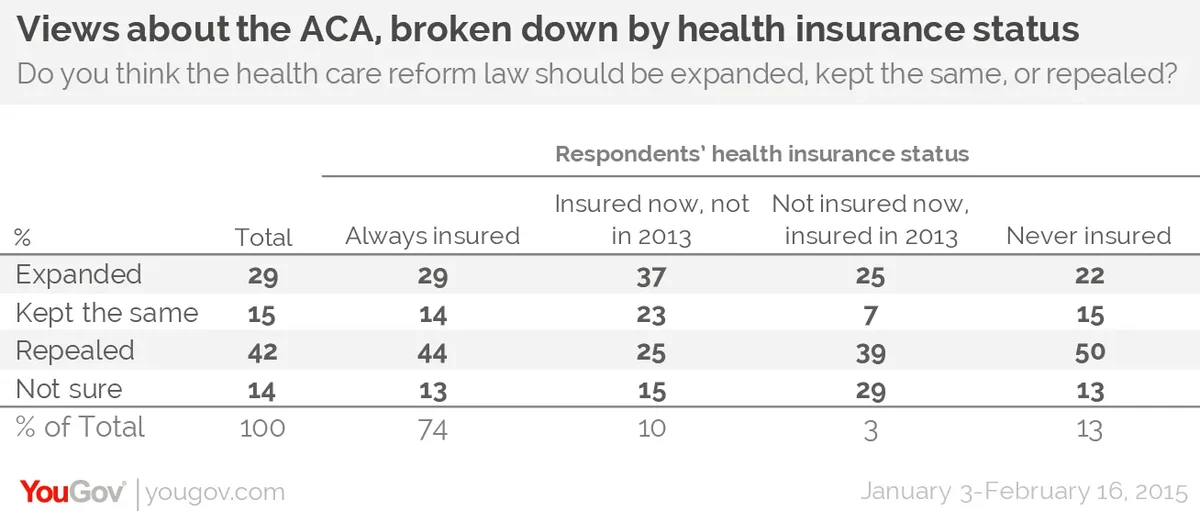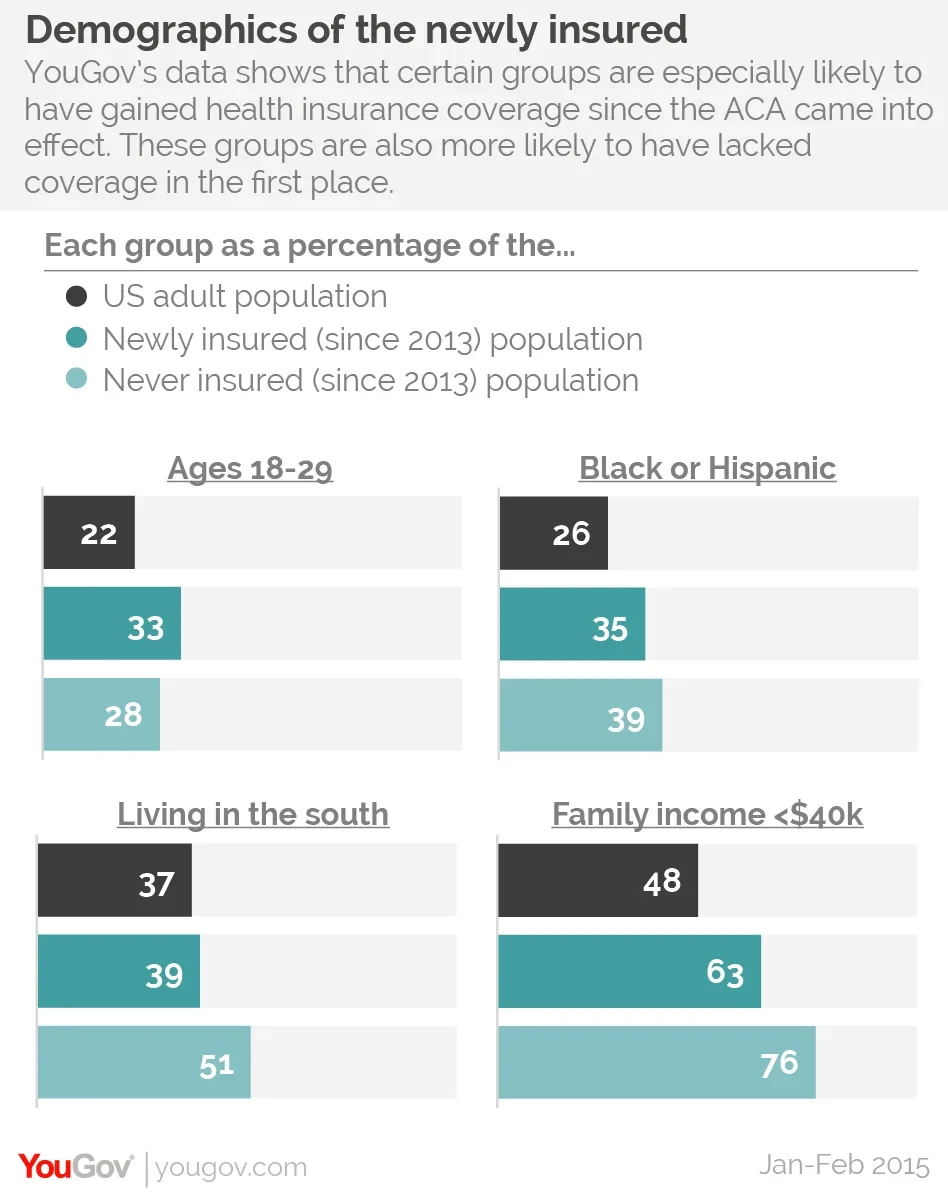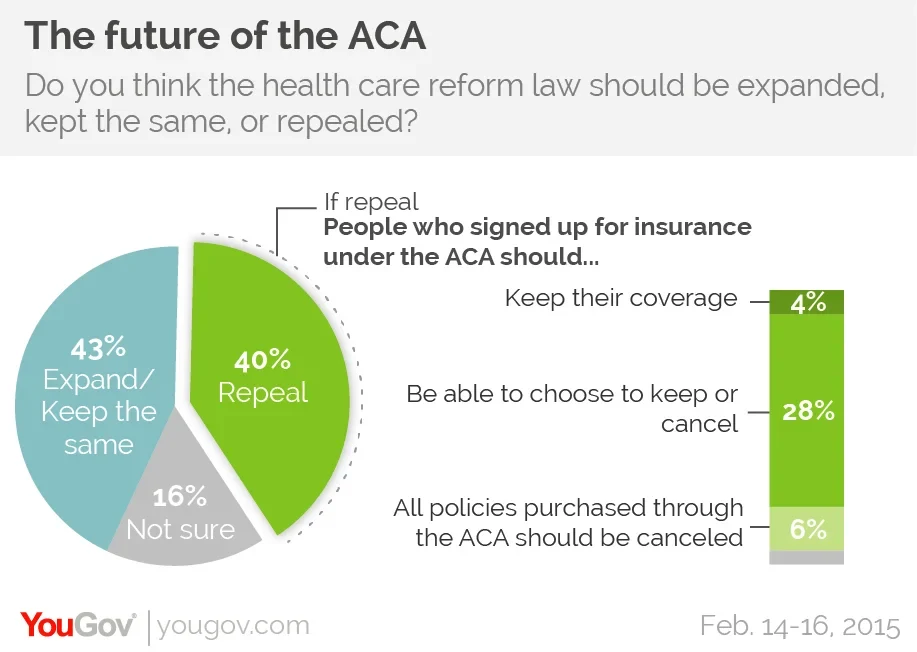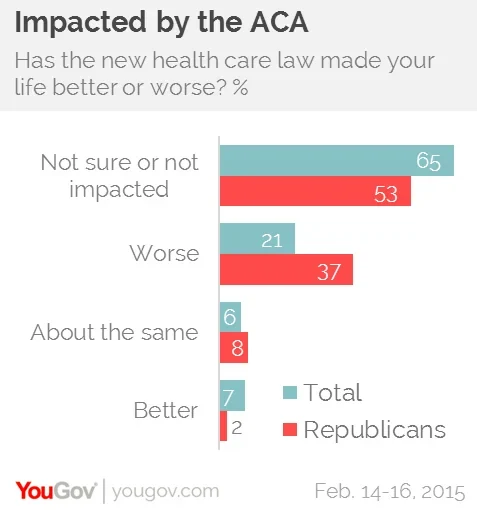People who have gained coverage since 2013 are positive about the health care reform law, but those who remain uninsured tend to want it repealed
Americans have become more accepting of the Affordable Care Act over the last year, and while they may not like it – in fact, nearly twice as many call it a failure as think it a success – an analysis of this year’s Economist/YouGov Polls shows that those who may have become newly insured because of Obamacare are generally pleased with the program.
10% of those in the six polls included in this analysis say they have health insurance today, but did not have it in 2013, the year before the program’s mandate for coverage went into effect. Slightly more are still uninsured (and 3% say that they were covered in 2013, but are not covered today). Of course, all of these changes are not necessarily the result of Obamacare, but there are differences in how each of these groups evaluate the program.
By more than two to one, those who have become insured want the program kept as it is or expanded, as opposed to repealing it. Those who were always insured are closely divided. Those who say they no longer have insurance narrowly favor appeal. But those who did not have health insurance in either period are the most negative. Half of them would repeal the program.

There are demographic differences between those who are now insured and those who are not. The newly-insured are more likely to be young, to have lower incomes than is the public overall, and to be black or Hispanic. But those characteristics also describe those who were not insured in 2013 and are not insured now, the group most negative about the plan.
But there are some differences in the two groups. Half of those who are not insured today and were not insured in 2013 live in the South (Southerners make up 39% of the newly insured). Nearly all Southern states opted out of the Medicaid expansion provided for in the Affordable Care Act. Arkansas is the only Southern state that has opted into the program.

The biggest differences between those two groups are political. The non-insured are much less likely to be registered to vote, and they are also less likely to be attached to either political party.
However, both groups are less likely to be registered than the population as a whole.
Less than half of Americans want Obamacare repealed. But even those who do want repeal don’t necessarily want the newly covered to lose insurance. Only 6% want repeal and then would cancel the insurance policies of those who have been covered by it. Instead they would let people choose whether or not to remain covered.

But the ACA remains a negative. Americans continue to report that the news – and their own discussions – about the Affordable Care Act have been mostly negative. Just 12% think the news has been mostly positive, and only 16% describe their own discussions that way. And while most say the law has not affected them, those who say the law has affected them are three times as likely to say it has made things worse.

That answer may be related as much to politics as to health. Just about half of Republicans say the law has affected them negatively, and the negative impact for them outweighs and positive assessment by 18 to one.
PA image
Update: Edited for clarity (03/05/15)Full poll results can be found here and topline results and margin of error here.









